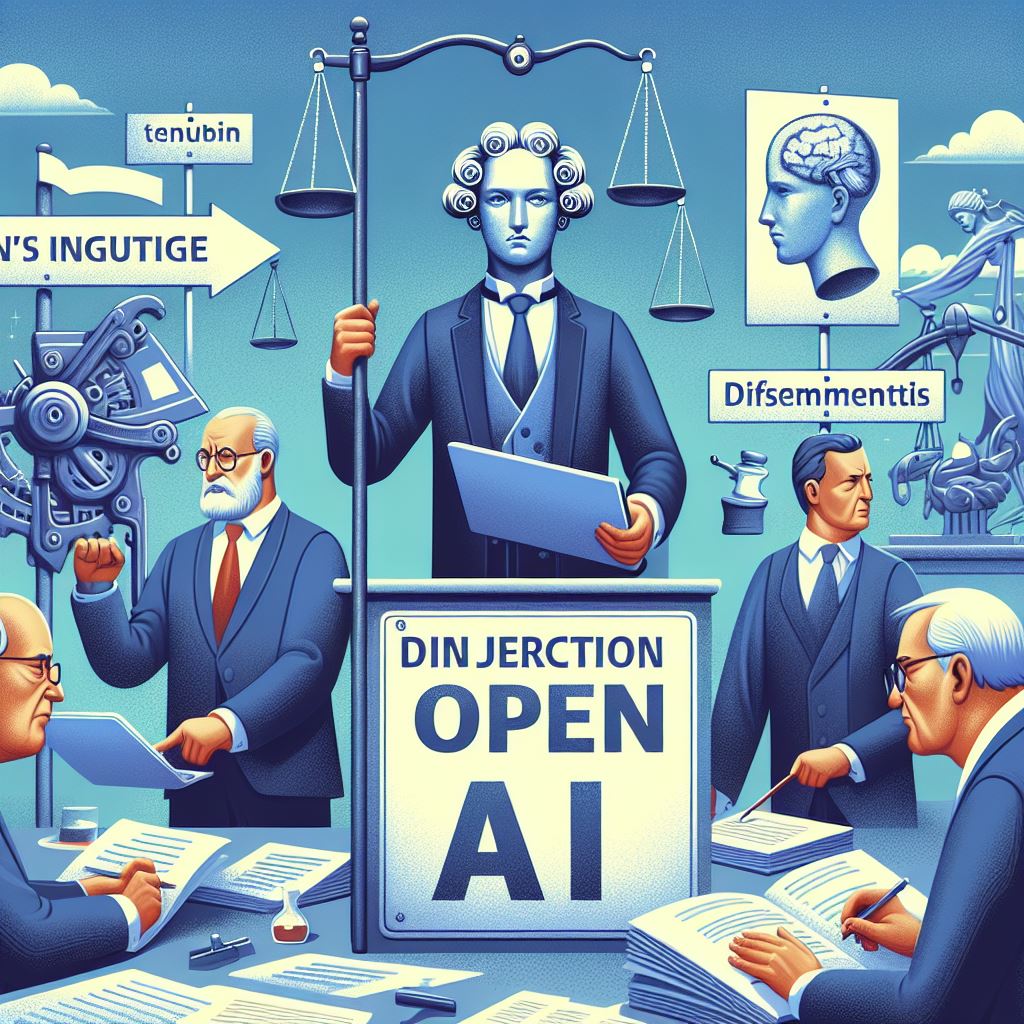Elon Musk Sues OpenAI Over Disagreements on Direction In a dramatic turn of events, tech entrepreneur Elon Musk has filed a lawsuit against OpenAI, the artificial intelligence research organization he co-founded. The legal battle centers around fundamental disagreements regarding OpenAI’s strategic direction and the ethical implications of its AI research. As the court proceedings unfold, the clash between Musk and his brainchild organization sheds light on the challenges faced by AI pioneers in navigating the delicate balance between innovation and responsibility.
Background
Elon Musk Sues OpenAI Over Disagreements on Direction OpenAI, established in 2015, aimed to advance AI research while ensuring its benefits were distributed broadly across humanity. Musk, along with other high-profile tech figures, invested in the organization, envisioning a future where AI would revolutionize industries, improve healthcare, and address pressing global issues. However, as OpenAI’s research progressed, tensions emerged over the organization’s approach.
The Disagreements
1. Autonomy vs. Safety
OpenAI’s mission initially emphasized autonomy for AI systems, allowing them to learn and evolve independently. Musk, a vocal advocate for AI safety, grew concerned about the potential risks. He argued that prioritizing autonomy without adequate safety measures could lead to unintended consequences, including harmful behavior by AI models.
2. Commercialization and Profit Motive
OpenAI’s pivot toward commercialization raised eyebrows. The organization sought partnerships with private companies, aiming to fund its research through commercial applications. Musk, who had previously expressed concerns about AI monopolies, worried that profit motives might compromise OpenAI’s commitment to transparency and safety.
3. Ethical Boundaries
OpenAI’s research into increasingly powerful language models, like ChatGPT, sparked ethical debates. Musk believed that clear boundaries were necessary to prevent misuse. He advocated for responsible disclosure of AI capabilities and limitations, while OpenAI explored more open-ended approaches.
The Court Battle
Elon Musk’s Allegations
In his lawsuit, Musk alleges that OpenAI’s decisions deviated from the organization’s original mission. He claims that OpenAI failed to adequately address safety concerns, leading to potential risks for society. Musk seeks clarity on OpenAI’s intentions and demands a reevaluation of its strategic direction.
OpenAI’s Defense
OpenAI counters that it has always prioritized safety but acknowledges the need to balance autonomy and responsible development. The organization argues that commercial partnerships are essential for sustainability and broader impact. OpenAI maintains that its research is transparent and committed to ethical guidelines.
Implications
1. AI Governance and Accountability
The lawsuit underscores the need for robust AI governance. As AI technologies advance, organizations must navigate complex ethical, legal, and societal considerations. Striking the right balance between innovation and safety remains a challenge.
2. Public Perception
The legal battle has drawn attention to AI’s inner workings. Public awareness of AI ethics and accountability is growing. OpenAI’s actions will shape public perception of AI research and its impact on society.
3. Collaboration or Competition?
The clash between Musk and OpenAI raises questions about collaboration within the AI community. Should organizations work together or compete fiercely? Finding common ground is crucial for advancing AI responsibly.
Elon Musk’s lawsuit against OpenAI serves as a cautionary tale for the AI field. It highlights the delicate dance between ambition and responsibility. As the court proceedings unfold, the world watches, hoping that this clash will ultimately lead to a more thoughtful and accountable AI future.


30mqh4
7aer5h
Hello my friend! I wish to say that this article is amazing, nice written and include approximately all important infos. I would like to see more posts like this.